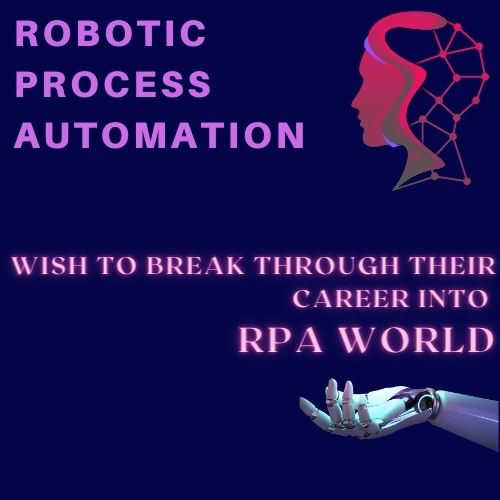I would like to give you an idea through my blogs, Now where our City is trending in near future.
The future of Karachi should be the Robotic Process Automation (RPA) which has emerged as a Transformative Technology that streamlines business operations, enhances efficiency, and reduces costs. RPA is gaining momentum across various industries worldwide, and its potential for automation and scalability has caught the attention of organizations in Karachi, Pakistan. This write-up explores the pace at which Karachi is adapting to this upcoming technology and the impact it can have on the city’s businesses and workforce.
- The Technological Landscape in Karachi: Karachi, being the economic and financial hub of Pakistan, boasts a vibrant technology sector and hosts numerous multinational corporations, local enterprises, and startups. The city has a growing pool of tech-savvy professionals, including software engineers, data analysts, and IT specialists. The presence of universities and educational institutions offering technical education further contributes to a skilled workforce capable of leveraging emerging technologies like RPA.
- Advantages of Robotic Process Automation: RPA offers several benefits that make it an attractive solution for businesses in Karachi. These advantages include:
a) Enhanced Efficiency: RPA automates repetitive and rule-based tasks, reducing human error and significantly increasing process efficiency. By delegating mundane tasks to software robots, employees can focus on more strategic and value-added activities.
b) Cost Savings: Implementing RPA reduces operational costs by decreasing manual labor requirements. Organizations in Karachi can leverage RPA to optimize resource allocation, achieve higher productivity, and enhance their bottom line.
c) Scalability and Flexibility: RPA systems are highly scalable, allowing businesses to adapt to changing demands and scale their automation efforts as needed. Moreover, RPA can integrate with existing software systems, making it a flexible solution that can be customized to fit specific business requirements.
- The Current State of RPA Adoption in Karachi: While the adoption of RPA in Karachi is still in its early stages, several organizations have recognized its potential and have begun implementing RPA initiatives. Key industries leading the way include banking and finance, insurance, telecommunications, and healthcare. These sectors often deal with high-volume, repetitive processes, making them ideal candidates for RPA implementation.
- Driving Factors for RPA Adoption in Karachi: Several factors contribute to the increasing interest in RPA adoption in Karachi:
a) Cost Pressures: Businesses in Karachi face intense competition and the need to optimize costs. RPA provides an opportunity to automate manual processes, leading to cost savings and improved operational efficiency.
b) Technological Awareness: Karachi’s businesses have a growing awareness of emerging technologies and their potential benefits. Organizations are actively exploring avenues for automation and digital transformation, with RPA being a prominent component of their strategy.
c) Government Support: The government of Pakistan has shown commitment to promoting the adoption of technology and innovation. Initiatives such as Digital Pakistan and the establishment of technology parks provide a conducive environment for RPA implementation.
- Challenges and Future Outlook: While the prospects of RPA in Karachi are promising, several challenges need to be addressed for widespread adoption:
a) Skill Development: As RPA implementation expands, there is a need to upskill the existing workforce to understand, manage, and develop RPA solutions. Educational institutions and training programs should focus on incorporating RPA into their curriculum.
b) Security and Compliance: RPA implementation requires careful consideration of data security, privacy, and compliance regulations. Organizations must ensure that their RPA solutions adhere to industry standards and best practices.
c) Change Management: Implementing RPA entails organizational changes and adjustments to existing processes. Effective change management strategies and employee training programs are vital to ensure a smooth transition and maximize the benefits of RPA.
Looking ahead, Karachi has the potential to become a regional leader in RPA adoption. With a supportive ecosystem, a skilled
So guys are you ready to learn about this emerging field. And I aim to show you the picture of world. And this is the right time for students, youngsters & my techies to wish to break through their career into RPA World . . . !




